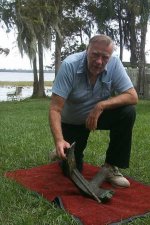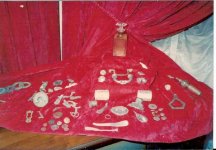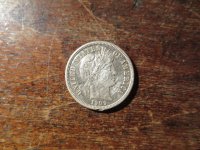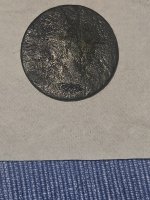Oceanscience
Full Member
- May 23, 2010
- 207
- 201
Peter Throckmorton was working on a project for a Theme Park, in Nassau, Bahamas, exhibiting the maritime history of the Bahamas.
The "Wrecking Industry" played a very important part in the Bahamas history. With thousands of shipwrecks in shallow, crystal clear, warm water, this part of the history has left a valuable resource for the Tourism Industry that is today's most important revenue of the country.
Peter Trockmorton's plan was to develop the infrastructure and economical viability of an organization that would provide conservation for the artifacts, archaeological training and field schools, archaeological guides etc. for the development of a branch of the tourism industry directed at making use of this unique resource of easily accessible shipwrecks.
Something of that kind may be in the plans of the Bahamian Government today, we will have to wait and see what the rules and infrastructure for the sector are going to be.
For myself, I can not think of a better situation for field schools for Maritime Archaeology than the Bahamas. There are so many shipwrecks and the water is so clear that one can see the lobsters, crawling among the wreckage, 40 feet deep.
Diving on archaeological shipwreck sites could be a branch of tourism that would bring many millions of dollars income to the Bahamas.
The "Wrecking Theme Park" where the story of these shipwrecks would be told, could become an important source of revenue and of course jobs, too.
The "Wrecking Industry" played a very important part in the Bahamas history. With thousands of shipwrecks in shallow, crystal clear, warm water, this part of the history has left a valuable resource for the Tourism Industry that is today's most important revenue of the country.
Peter Trockmorton's plan was to develop the infrastructure and economical viability of an organization that would provide conservation for the artifacts, archaeological training and field schools, archaeological guides etc. for the development of a branch of the tourism industry directed at making use of this unique resource of easily accessible shipwrecks.
Something of that kind may be in the plans of the Bahamian Government today, we will have to wait and see what the rules and infrastructure for the sector are going to be.
For myself, I can not think of a better situation for field schools for Maritime Archaeology than the Bahamas. There are so many shipwrecks and the water is so clear that one can see the lobsters, crawling among the wreckage, 40 feet deep.
Diving on archaeological shipwreck sites could be a branch of tourism that would bring many millions of dollars income to the Bahamas.
The "Wrecking Theme Park" where the story of these shipwrecks would be told, could become an important source of revenue and of course jobs, too.







